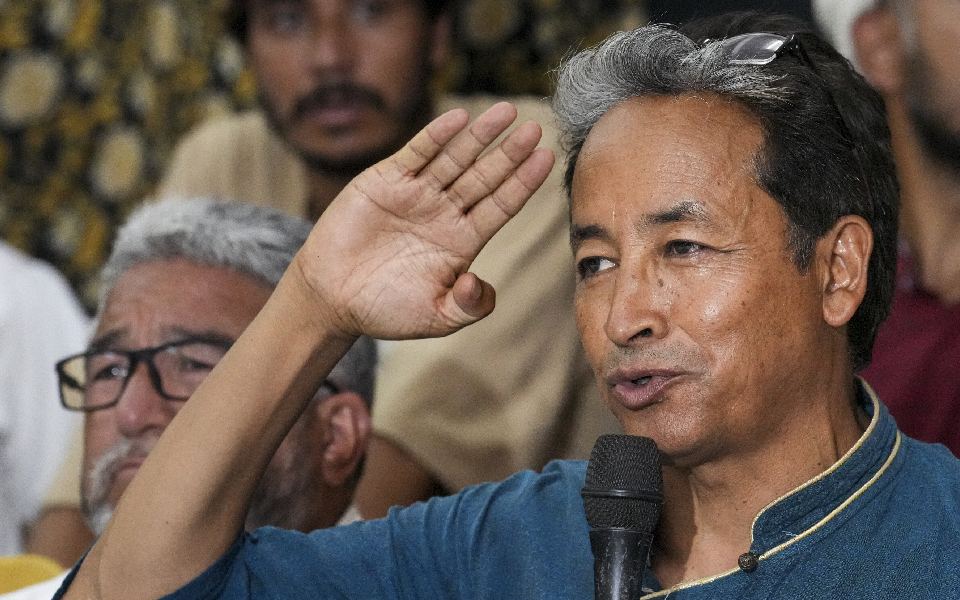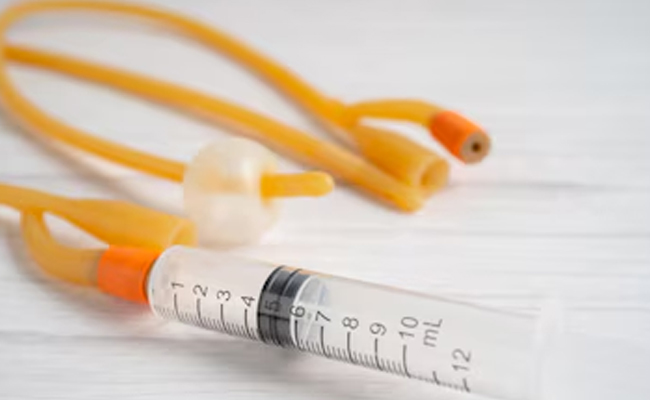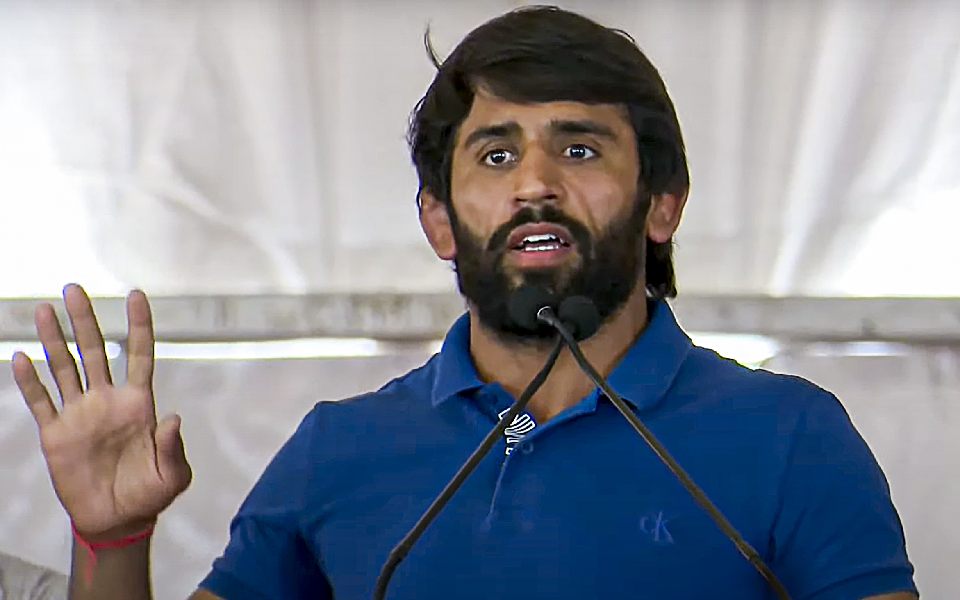New Delhi, Oct 4: Climate activist Sonam Wangchuk said he and other protesters from Ladakh would sit on an indefinite fast from Saturday since they have not received any response from the government over their demand of meeting the President, prime minister or the Union home minister.
Wangchuk was leading the 'Delhi Chalo Padyatra', which began from Leh a month ago. The 'padyatra' was organised by the Leh Apex Body, which along with the Kargil Democratic Alliance, has been spearheading an agitation for the last four years for statehood for Ladakh and its inclusion in the Sixth Schedule of the Constitution.
At a press conference here, the climate activist said they had written to the office of the President, Prime Minister and Home Minister seeking an appointment and were assured that they would be informed about the meeting by Friday 5 pm.
"We have not received any response from the government. So we will sit on an indefinite fast from tomorrow," Wangchuk said.
Ladakh MP Mohmad Haneefa and other members of the Leh Apex Body and Kargil Democratic Alliance were present at the press conference.
Wangchuk said they have requested the authorities to provide them space in Jantar Mantar for holding the fast. He said they have not received any confirmation yet and appealed to all political parties and organisations to provide them with a venue for the protest.
Wangchuk and 150 people from Ladakh were detained from Delhi's Singhu border on Monday night. They were taken to Mahatma Gandhi's memorial at Rajghat on Wednesday and were released after that.
Let the Truth be known. If you read VB and like VB, please be a VB Supporter and Help us deliver the Truth to one and all.
Kolkata (PTI): The West Bengal health department has launched a probe into the supplies of allegedly low-quality and locally made catheters at a high price to several government hospitals, posing a risk to the lives of patients undergoing treatment in these facilities, officials said.
Such central venous catheters (CVCs) were allegedly supplied to at least five medical colleges and hospitals in the state, defying allocation of international standard-compliant CVCs, they said.
The distribution company, which has been accused of supplying these catheters to government hospitals, admitted to the fault but placed the blame on its employees.
"We started checking stocks some time back and found these locally made CVCs in my hospital store. These catheters are of low quality as compared to those allocated by the state. We have informed the state health department," a senior official of the Calcutta Medical College and Hospital told PTI.
Low-quality catheters were also found in the stores of other hospitals, which indicates "possible involvement of insiders in the scam", a health department official said.
The low-quality CVCs were supplied by a distributor in the Hatibagan area in the northern part of Kolkata for the last three to four months, he said.
"Such kinds of local CVCs are priced around Rs 1,500 but the distributor took Rs 4,177 for each device," the official said.
A CVC is a thin and flexible tube that is inserted into a vein to allow for the administration of fluids, blood, and other treatment. It's also clinically called a central line catheter.
"An initial probe revealed that the distribution company Prakash Surgical had supplied the low-quality and locally manufactured catheters to several government hospitals instead of the CVCs of the government-designated international company.
"All the units will be tested and a proper investigation is on to find out who benefited from these supplies," the health department official said.
The distribution company blamed its employees for the supply of inferior quality catheters.
"I was sick for a few months. Some employees of the organisation made this mistake. We are taking back all those units that have gone to the hospitals. It's all about misunderstanding," an official of the distribution company told PTI.
According to another state health department official, a complaint was lodged with the police in this connection.
Asked about how many patients were affected by the usage of such low-quality CVCs, the official said, "The probe would also try to find that out".
According to sources in the health department, some of the staff of the hospitals' equipment receiving departments and some local officials of international organisations might be involved in the alleged irregularities.




